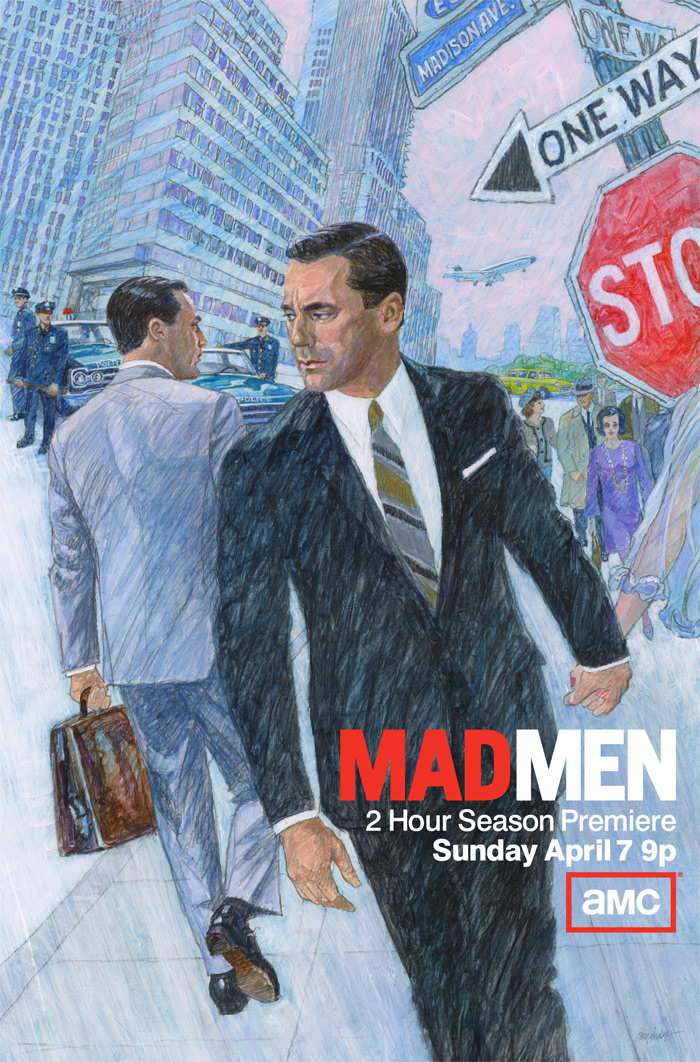“What Will We Do Without Affirmative Action?” Mychal Denzel Smith of The Nation writes about the case of Fisher v. University of Texas, in which the plaintiff, Abigail Fisher, a white woman, claimed to have been denied admission to the University of Texas at Austin because she is white. The Supreme Court sent the case back to the US Court of Appeals for the Fifth Circuit, which means “affirmative action, for the time being, is still constitutional.” But what’s next? Related: NY Times story and video by Adam Liptak, Sam Tanenhaus and Axel Gerdu.

“The best refutation of a race-based affirmative action is the idea that it should be class-based. […] However, an argument for class-based affirmative action should not cancel out race-based programs but highlight the fact that what we need is more affirmative action. What’s needed are programs that address inequality, whether based on race, gender, class or any other classification, with respect to the nation’s history of discrimination and an eye toward eradicating the inequalities such discrimination has caused. It’s the type of program we’ll never get, because a real affirmative action program would undermine the American notion that we are a meritocratic society, one in which people succeed based on their own merits and hard work. It would be an admission on the part of the US government that some citizens in this country have long benefited from discriminatory policies and the only way to counter the legacy of those policies is an aggressive program in which those who have been discriminated against are guaranteed education and jobs.”

“What it Means to be ‘Pro-Putin.’ For ReadRussia, Mark Adomanis writes about “why I find most Western media coverage of Russia so infuriating.” Related: Adomanis’ Forbes piece “The Forgotten Crackdown: Everybody Forgets that Yeltsin Blew Up His Rivals with Tanks and Artillery.”

“I have not, do not, and will not affirmatively defend Putin’s rule or his penchant for autocratic methods. […] Where I’ve differed from the consensus, and where I will continue to differ, is not in my overall view of the desirability of Putinism: in that regard, as some of my more persistent commenters have never tired of pointing out, I’m an utterly boring Western liberal indistinguishable from any other. I differ in my unwillingness to blame Vladimir Putin for things he hasn’t done and in my unwillingness to make accusations that aren’t supported by the facts. […] A sloppy argument doesn’t magically become a good one simply because it’s directed against an unsavory character, and no one gets a free pass for stretching the truth simply because they’re opposing the Kremlin.”

“Jaws the Revenge: This Time It’s Ridiculous.” Roger Ebert got one of his funniest reviews out of the miserable experience of watching the fourth Jaws film. John Rain of Cinetropolis gives him a run for his money.

“The reasons for the revenge are unclear and never explored. In fact, the word ‘revenge’ is only mentioned in the title of the film. Is this revenge for the previous three sharks that have died? Is this a relation to the other sharks? Where do we find answers to this problem? Well, the novelization suggests that the shark may be acting under the influence of a vengeful voodoo witch doctor (who has a feud with the Brody family), and the shark’s apparent revenge has magical implications, therefore the witch doctor is the one getting ‘revenge’ and the shark is his tool. Having seen the previous Jaws films, it is difficult to imagine exactly when the Brody family would have even met a witch doctor, never mind wronged one. Perhaps somewhere, hidden in a vault, is a deleted scene from the first Jaws in which Martin Brody pisses off a witch doctor by telling him the beach is closed.”

“James Gandofini Did Not Die of Natural Causes.” For The Huffington Post, James Barnard, M.D. makes the case for the actor’s death as a cautionary tale.

“The idea that a heart attack is ‘natural’ for a man of only 51 is a dangerous fallacy that medicine has tried very hard to dispel. A heart attack is a disease state caused by specific circumstances, and it needs to — and can — be prevented. According to the Centers for Disease Control and Prevention, about 600,000 people die of heart disease in the United States every year — and heart attacks can happen at any age. More than 80 million Americans have one or more forms of cardiovascular disease. Lifestyle and dietary choices often are at fault. Smoking, lack of exercise, and the standard American diet all cause high blood pressure, diabetes, and obesity. […] If reports of Gandolfini’s last meal — prawns and foie gras — are correct, he got a significant dose of saturated fat, sodium, and cholesterol shortly before he died. Abundant research shows that even a single fatty or salty meal can stiffen the arteries and greatly increase the risk of a heart attack.”

“THE BOOKS: Life Stories: Profiles from The New Yorker, edited by David Remnick; “Isadora,” by Janet Flanner.” By RogerEbert.com contributor Sheila O’Malley, for her personal blog The Sheila Variations. Sheila regularly reports on her voluminous reading list, and offers excerpts and analysis of her favorite bits.

“Today’s piece is by Janet Flanner, the Paris editor of The New Yorker in the 1920s. It is from 1927 and is about Isadora Duncan (who, incidentally, died in 1927, in Nice). The eerie thing about Flanner’s piece is that Isadora is still alive at the time of the writing, and discusses what she will be doing in Nice. It discusses her history, which was tumultuous to say the least. She was a serious “Red” (she moved to Russia, but found the actual “Reds” too middle-class for her taste), she had kids out of wedlock by two different fathers (one of them being Gordon Craig, the famous set designer/visionary son of great English actress Ellen Terry) – and, horrifyingly, both of her children died in an accident with a car. […] A pioneer, in the same vein as Martha Graham (also profiled by Joan Acocella), she was part of the great Modernist push of the early 20th century. Classical forms, in the novel, in music, in dance, started fracturing. WWI pushed the cracks further apart, never to be put back together again.”


Patrick Ryan of USA Today analyzes Mad Men’s mysterious, much-discussed season six teaser poster (above), with the knowledge we’ve gained from watching the thirteen episodes it advertised. Good stuff, though for sheer wildness, you can’t beat this piece by Lindsey M. Greene for Medium Cool, which posits that Mad Men hero Don Draper will eventually become the disappeared 1970s hijacker D.B. Cooper. Related: Linda Holmes of NPR’s “Monkey See” blog, writing about the mishandling of Megan: “Ruminations on the Buying and Selling of Something Beautiful.”

On Nightline, Roger Ebert and Gene Siskel defend the original 1977 Star Wars against attacks by The National Review‘s film critic John Simon. “I totally disagree with Mr. Simon,” Roger says. “I don’t know what he did as a child, but I spent a lot of my Saturday afternoon matinees watching science fiction movies and serials and having a great time, and being stimulated, and having my imagination stimulated, and having all sorts of visions take place in my mind that helped me to become an adult, and to still stay young at heart.”












